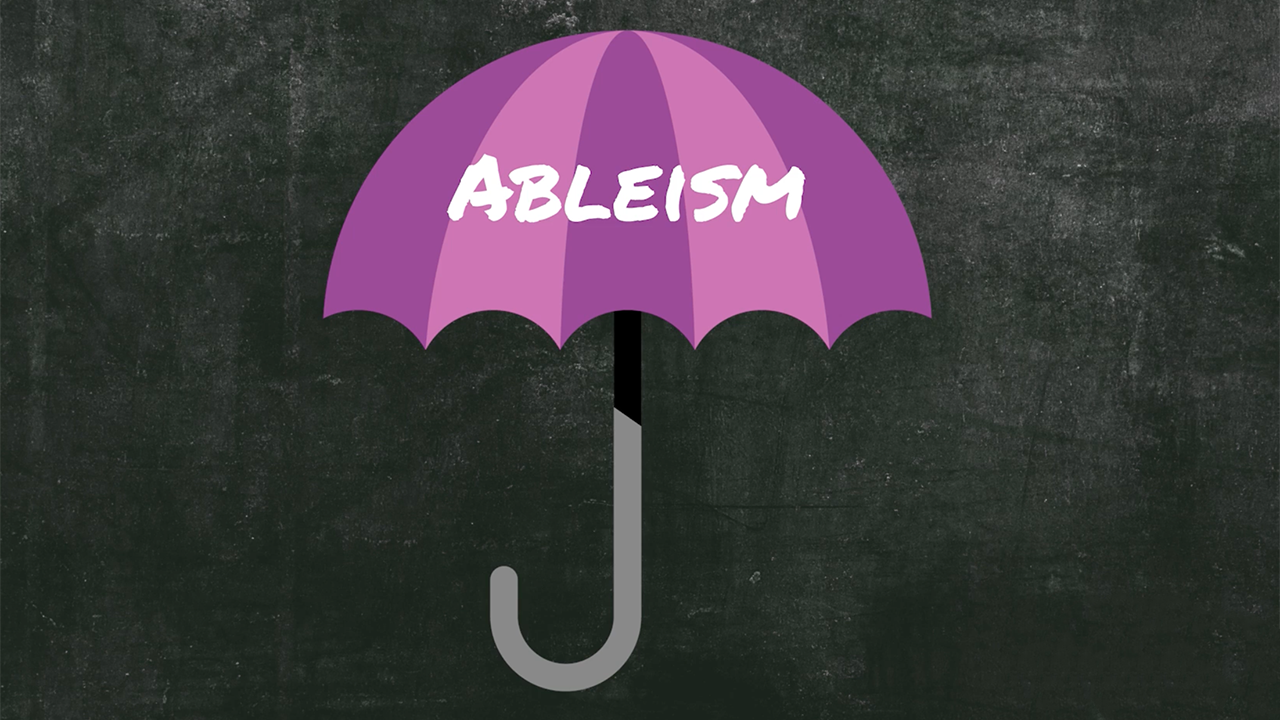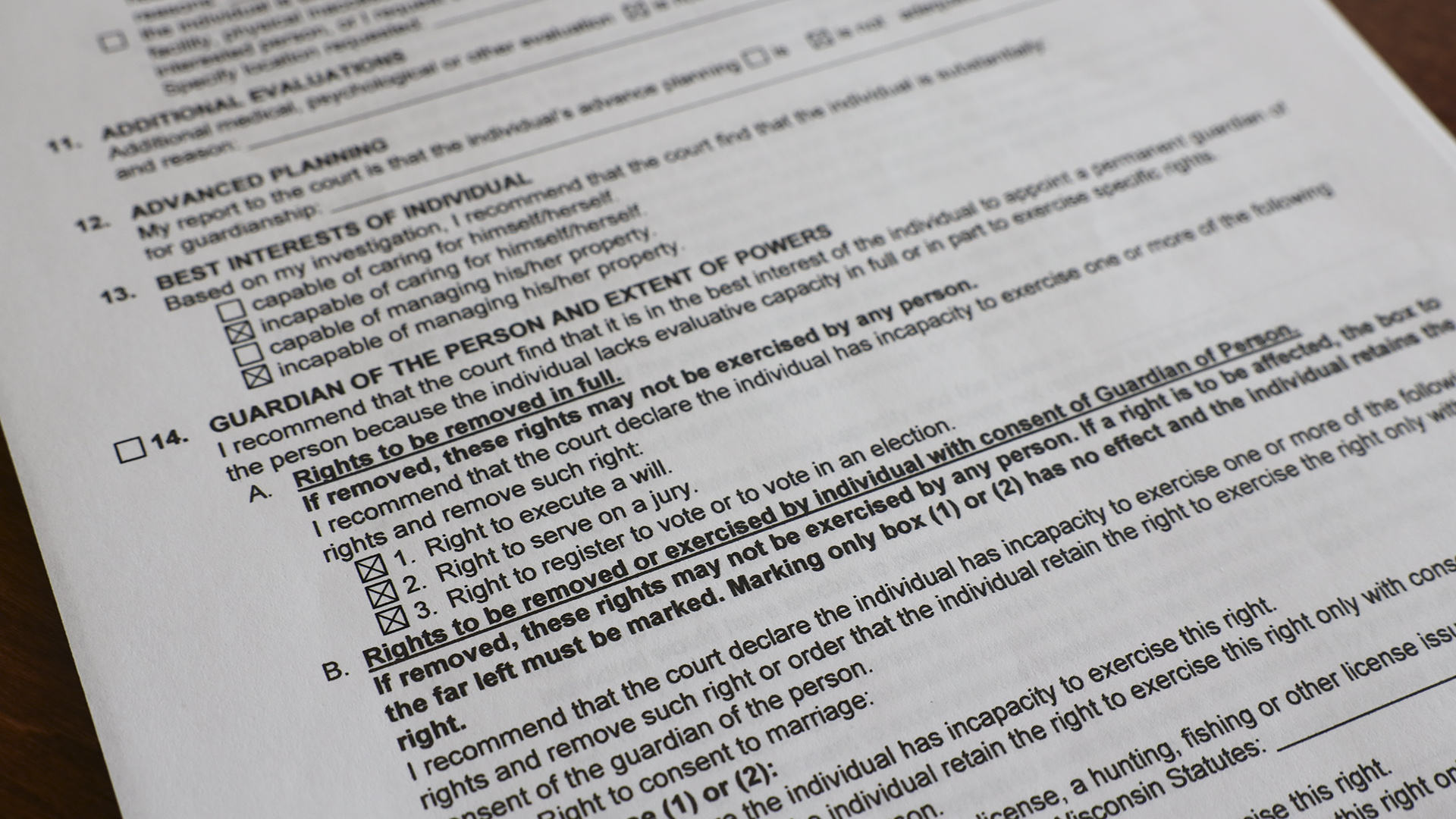July 19, 2024 Sigrid Peterson
In the United States, July is designated Disability Pride Month to commemorate the passage of the landmark Americans with Disabilities Act (ADA) on July 26, 1990, and to recognize the disability community’s longstanding activism and ongoing support for civil rights and awareness.
An estimated 1 billion people worldwide live with a variety of disabilities. According to the U.S. Census Bureau’s American Community Survey, the U.S. population with disabilities in 2022 is estimated to be 44.1 million, or 13.4% of Americans.
As part of our Voices project, PBS Wisconsin has launched a new collection of resources to serve as tools for everyday efforts to build a society that celebrates disability pride and opposes ableism.
The collection tops off with the Disability Pride flag, first designed in 2019 by writer Ann McGill, who has cerebral palsy, and updated in 2021. The flag reminds us to consider the broad spectrum of disability: red represents physical disabilities, gold represents neurodiversity, and white represents invisible and undiagnosed disabilities. Blue encompasses emotional and mental disabilities such as anxiety disorders, depression and a broad range of mental illnesses, while green represents sensory disabilities such as hearing loss, blindness and speech processing disorders. The charcoal background mourns and commemorates disabled people who have died as a result of violence, negligence, suicide, rebellion, disease and eugenics.
The range of PBS Wisconsin resources in the Voices collection includes our full range of programming, including independent films from POV and the PBS Short Film Festival, reports from News Hour and local PBS Wisconsin News, Made in Wisconsin programs like Wisconsin Life and University Place, and classroom resources from PBS Wisconsin Education and PBS LearningMedia.
Explore these highlights and see the full collection to celebrate disability pride.
Resisting the culture of ‘ableism’ with PBS Wisconsin Education’s Alias Teacher
 The culture of ableism persists throughout our society. Simply put, ableism is discrimination against people with disabilities. In a structurally ableist society, this discrimination is reproduced in our institutions, laws, culture, and physical and social structures. This episode of aka Teacher from PBS Wisconsin is a resource for learning how to achieve ableism-free classrooms.
The culture of ableism persists throughout our society. Simply put, ableism is discrimination against people with disabilities. In a structurally ableist society, this discrimination is reproduced in our institutions, laws, culture, and physical and social structures. This episode of aka Teacher from PBS Wisconsin is a resource for learning how to achieve ableism-free classrooms.
For even more classroom learning resources, check out PBS LearningMedia’s Move to Include , a multi-platform public media initiative designed to promote inclusion for people with disabilities.
New from POV: Is there anyone there?
New for July from POV is filmmaker Ella Glendening’s Is There Anybody Out There?. Glendening, a 20-something with a rare physical disability, embarks on a journey to discover self and identity in a world of ableism while meeting people with similar experiences as herself, and the caregivers who love them.
“Take Me Home” from the 2024 PBS Short Film Festival
The 2024 PBS Short Film Festival kicks off on July 15, and this year’s lineup includes “Take Me Home” by filmmaker Liz Sargent, about a young woman with an intellectual disability and her estranged sister as they cope with the death of their mother and learn to communicate.
PBS NewsHour Remembers Disability Rights Hero Judy Heumann
To achieve an anti-ableism society, we must actively learn about the history of disability and disability rights. Judy Heumann (1947-2023) was one of the pioneers of disability rights advocacy. Often referred to as the “mother of the disability rights movement,” Heumann was an internationally recognized civil rights advocate who played an integral role in the passage and implementation of various key pieces of legislation, including the Americans with Disabilities Act of 1990. Educators can use this U.S. history collection from PBS LearningMedia as an additional resource to introduce students to Heumann in the classroom.
PBS Wisconsin News reporting on disability

PBS Wisconsin News has strengths in reporting on state politics, courts and social issues and how they affect the lives of Wisconsinites with disabilities. During this and past election seasons, the news team and its local and national partners have covered the intersection of disabilities and voting rights and regulations in the state. Recent reporting by Wisconsin Watch and our partners at The Associated Press has covered a Wisconsin lawsuit over whether voters with disabilities can access certain absentee ballot accommodations. Read more:
Wisconsin Republicans Appeal Ruling Allowing People with Disabilities to Get Electronic Ballots, from Associated Press Partners, June 30, 2024 Dane County Judge Allows Wisconsin Voters with Disabilities to Vote from Home, from Associated Press Partners, June 25, 2024 Rep. Kaul Opposes Allowing Wisconsin Voters with Disabilities to Vote Electronically from Home, from Associated Press Partners, June 24, 2024 Wisconsin Voters with Disabilities Demand Better Ways to Vote Absentee, from Wisconsin Watch, April 23, 2024 People with Disabilities Sue in Wisconsin Over Lack of Electronic Absentee Ballots, from Associated Press Partners, April 17, 2024
How can theatre be more inclusive?
Ableism has stunted our theatrical arts through a lack of representation for actors, directors, set designers, and producers with disabilities. A 2019 episode of PBS Wisconsin’s University Place explores ways theater can become more inclusive for people with disabilities. In July 2022, PBS’s Great Performances taped New York Public Theater’s Richard III production of Shakespeare in the Park (viewed on Passport) to spotlight the efforts the production team made to prioritize inclusion. Also in 2022, The News Hour covered how a deaf cast acting at Maryland’s Olney Theatre Center challenged theatrical norms in their production of the Broadway classic The Music Man.
Abilism PBS Wisconsin Voices Disability Pride Americans with Disabilities Act Disability

